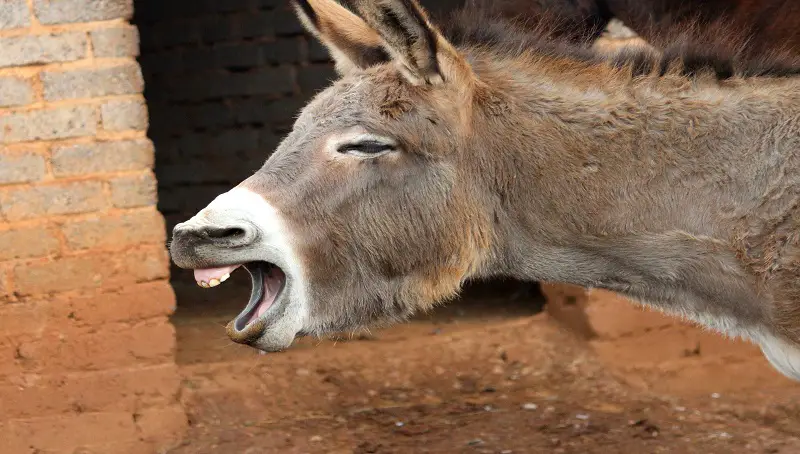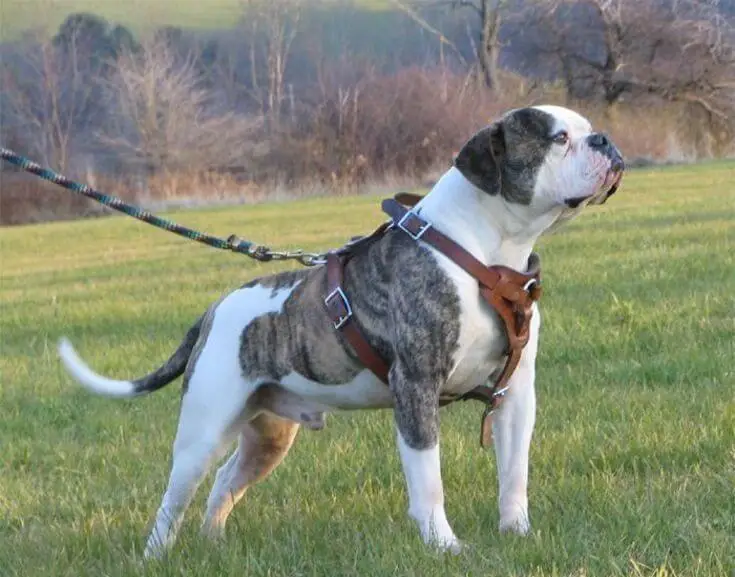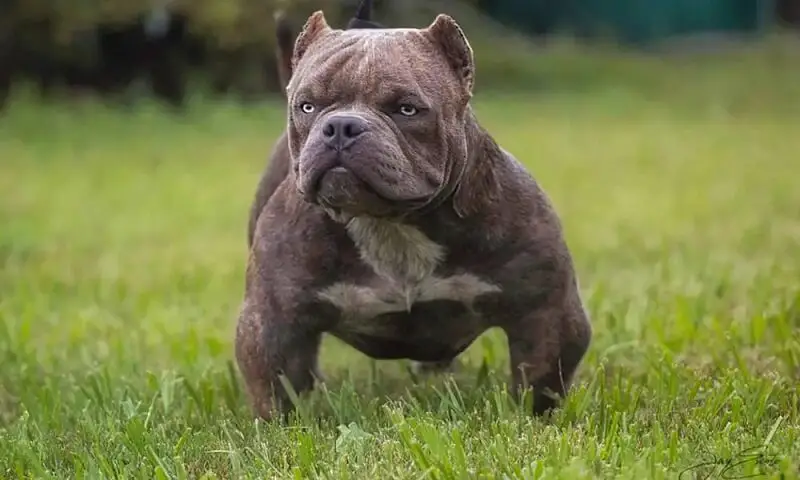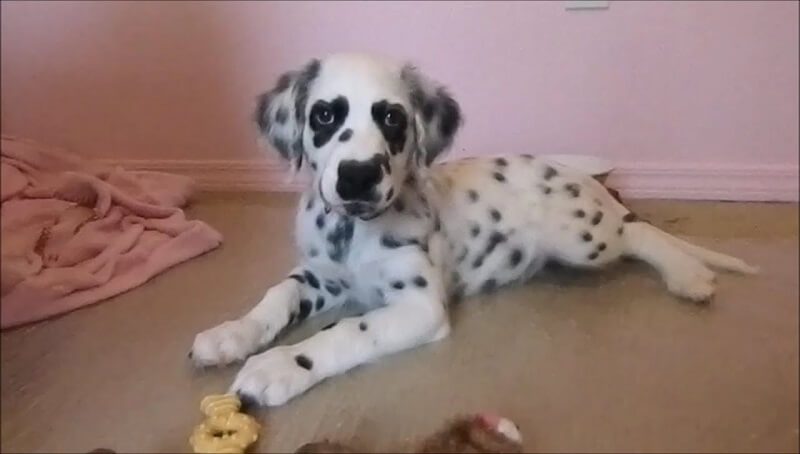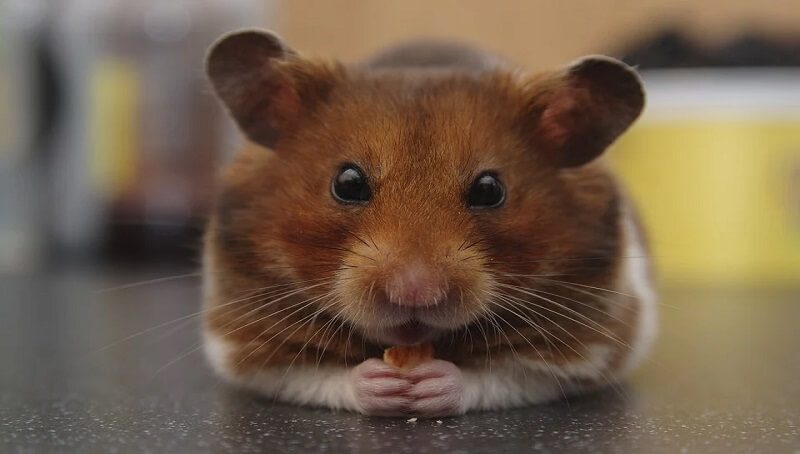Do donkeys really laugh? Although people think donkeys laugh, it turns out that they really don’t. They make sounds that to some ears seem to be laughter, but these are usually a form of warning of danger somewhere around them.
On the other hand, some people might confuse the donkey showing its teeth with a big smile, but that is another defensive mechanism, something called the Flehmen’s response, which has nothing to do with laughter or smiling.
OK, this was the short and sweet, to-the-point answer. But now lets’ dig a little further and talk about different situations in which donkeys might seem to laugh.
You’ve surely seen some of the many viral videos of donkeys laughing or smiling at the most random things. Most of them show donkeys laughing whenever a human falls or trips right in front of them. This usually causes people to relate and also start laughing hysterically.
The Braying of donkeys is a warning signal
Although the braying of donkeys is similar to a laughing sound, don’t take it as amused laughter. It usually is a warning signal that can be heard from very long distances, that would alert surrounding animals of danger close by.
You might also like my articles on whether cows can swim, whether cows have periods, and great treats for llamas.
A donkey braying might seem pointless to humans, but it turns out that these sounds are most of the time very helpful. These are used by donkeys to warn others of predators and dangerous situations.
Some more experienced farmers will keep donkeys around as a way of protecting livestock because they will start to “laugh” as soon as they see wolves or other dangerous animals approaching.
Laughter? More like fear and distress
The body language and sound patterns of donkeys don’t differ all that much from that of other animals. Most of the time, animals won’t actually laugh like humans. Instead, they will use these loud sounds and will show their teeth as a warning signal.
These are just natural responses that they have developed to protect themselves and alert others.
This is why in the particular case I have presented above, with a human falling right next to the animal, it caused it to get alarmed by the unexpected movement, making it give out sounds of fear.
As natural instincts start to kick in, you will notice that one donkey will start to make sounds that resemble laughing, while the others will move away. The closer ones will show their teeth as a way to seem more menacing to the approaching danger.
What does the smile of the donkey mean?
This weird smiling-like gesture when donkeys will start to show their teeth by folding their lips is something called the Flehmen reflex. It is very common for a lot of animals, including cats and monkeys.
These animals will usually retract their lips and open their mouth for two main reasons: one will be to seem more menacing to incoming dangers, while the second, lesser-known reason will be that the animals will analyze the aromas that get into the mouth and then reach the mouth, with the help of an organ called the vomeronasal organ.
This gesture helping them get some understanding of the surrounding environment means that it won’t be used only when a predator is getting close. In fact, donkeys also use this technique during the mating season to check if a possible partner is ready to mate.
Do donkeys really laugh to express their happiness?
Braying is used by donkeys not only to announce the presence of a predator. They use this sound as a way of expressing different things to other mammals, even the fact that they are happy.
They would also use this sound when they are jealous when calling other mates from their herds when they are hungry, and for a few other reasons as well.
Can donkeys ever feel happiness?
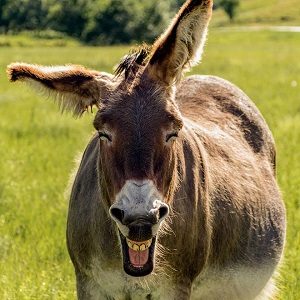 Most, if not all of the animals have an area of the brain that can release and get stimulated by dopamine. As you surely know, dopamine is behind the feeling of happiness and so, because donkeys can have dopamine released to stimulate their brains, they will be able to feel something close to happiness.
Most, if not all of the animals have an area of the brain that can release and get stimulated by dopamine. As you surely know, dopamine is behind the feeling of happiness and so, because donkeys can have dopamine released to stimulate their brains, they will be able to feel something close to happiness.
Although braying is usually not a sign of intense happiness, animals are able to transmit their emotions through other body gestures and facial expressions, just like humans.
On the other hand, laughter means the ability to understand humor, and having a sense of humor is a cognitive process too complex for animals. This means that although animals will feel happiness through dopamine release, they won’t laugh as humans do.
Regardless of how much you want your animal to be as intelligent as you, the truth of the matter is that it really isn’t. And if it is, it would be a scientific breakthrough.
Why are donkeys screaming at night?
As said before, regardless of the time of day or night, donkeys will bray or even scream when they feel or hear anything that would scare them or cause them distress. Also, it isn’t uncommon for male donkeys to bray loudly when they are in heat, a sound that is just like a laugh.
This can easily become very annoying, especially for people living close by or in urban areas.
Regardless of how annoying they might be, donkeys will continue to bray, because it is one of the ways in which they communicate with other animals that can be even miles away.
Oh, and here’s a really funny compilation of donkeys, some of them are fake-laughing.
